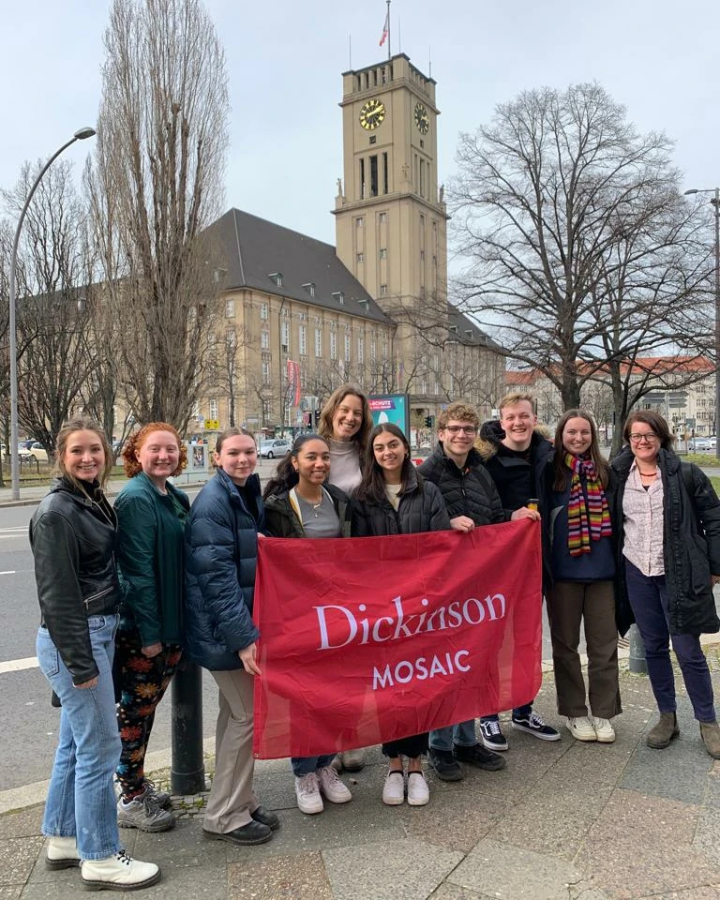German and Environmental Studies Students Visit Germany on Mosaic Trip
Over spring break, students in the German and Environmental Studies departments visited Dresden, Bremen, and Berlin in Germany to learn about the nation’s energy infrastructure, German culture and history.
To qualify for the trip, students enrolled in three courses taught by professors Antje Pfannkuchen from the German department and Heather Bedi from Environmental Studies. One of the classes is a 500-level independent study class designed for the students to conduct research during the trip, and the others are “German Environments” and “A Just Energy Transition.”
Noah Salsich ’25 conducted surveys on how coal workers are being supported in the transition to green energy which will supplement his research paper for the end of the semester. When asked what his most valuable takeaways were, Salsich said, “their government is so different from ours — it’s pluralist, which I think it helps them so much” and “the way they think about infrastructure is very people-based, and not profit-based at all.”
Salsich saw elements of the “A Just Energy Transition” class throughout the stay in Germany, specifically on trips they took to a Volkswagen electric car factory, a wind farm, a climate museum and an energy co-op.
Most of the students on the trip are Environmental Studies or Environmental Science majors, but Makayla McCloskey ’26 is a German and Environmental Studies double major who used her German for the first time outside of the classroom, which she found rewarding.
Students’ favorite aspects of the trip varied. Kiara Ganther ’24 enjoyed Berlin’s cosmopolitan nature, while Salsich’s favorite city was Bremen because of its antiquity.
McCloskey most enjoyed her last day in Berlin where she and two other students went train hopping, “to see if we could navigate on our own.” She took advantage of Germany’s streamlined public transportation systems, which meant the students never used a car. She said, “it’s something I wish was more available [in the United States].”
The same sentiment was shared by Ganther, who is studying the motives of using public transportation in Germany. She surveyed people asking whether sustainability of or accessibility to public transportation mattered more. She observed that “people were torn between having more access or being more sustainable, so sustainability is definitely on their conscience.”
Salsich expressed discontent shared amongst the group that the Center for Global Study and Education (CGSE) did not offset the carbon emissions for the trip, which they normally do for study abroad summer and semester programs. The students decided to offset the trip through independent fundraising. Salsich encouraged CGSE to consider changing this policy for future Mosaic trips.



